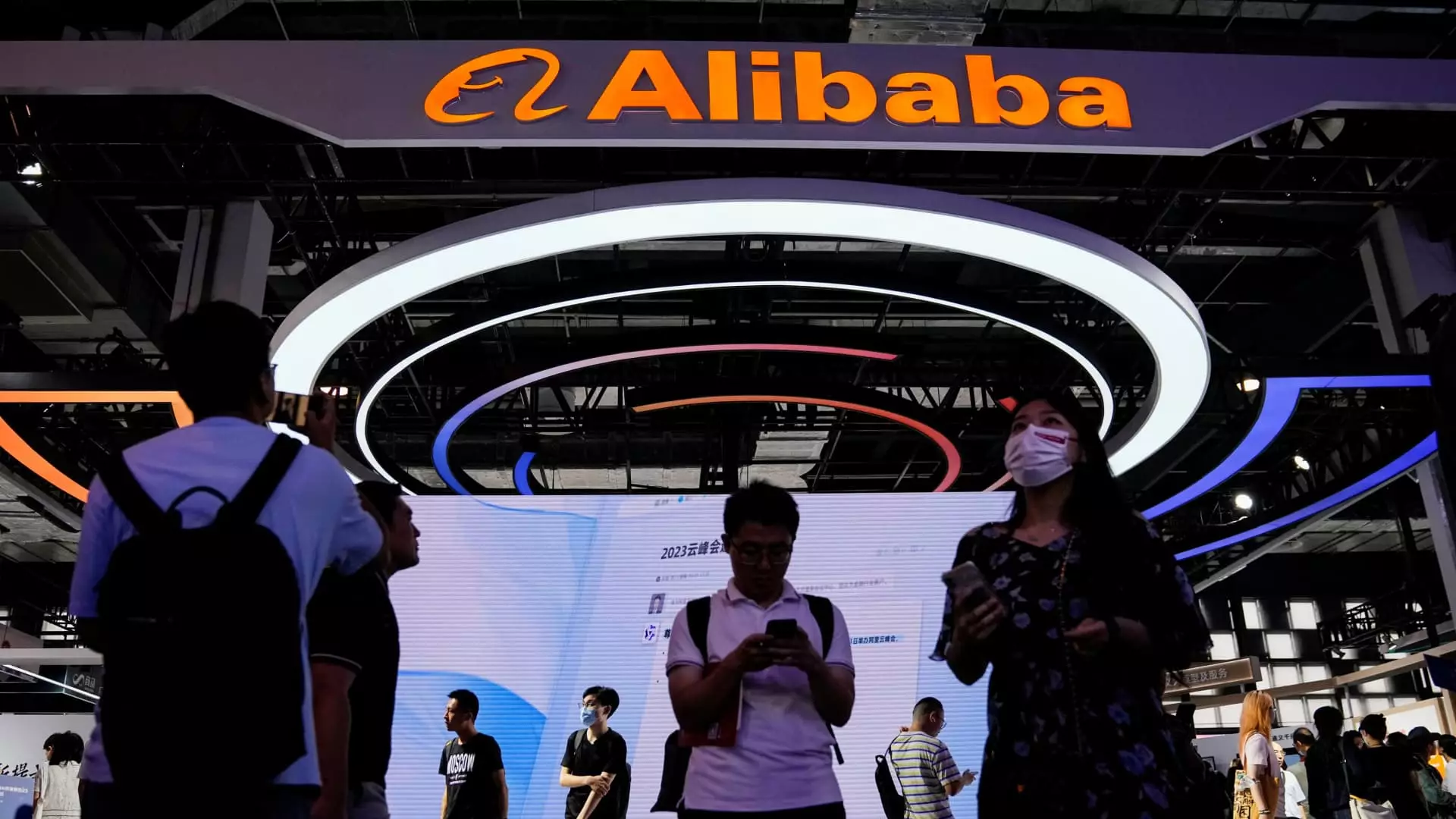In a significant development in the AI technology sector, Alibaba Group announced on Tuesday that it will cut prices for its large language models by as much as 85%. This reduction comes from Alibaba Cloud, the online giant’s cloud computing division, which outlined the price cuts in a WeChat post. Specifically, the visual language model known as Qwen-VL, capable of comprehending both text and images, will see substantial cost reductions. While Alibaba’s stock only experienced a marginal increase of 0.5% following the announcement, this strategic pricing adjustment highlights an escalating competition among China’s top tech companies as they jockey for a stronghold in the evolving AI market.
The aggressive pricing strategies reflect the mounting pressure on major Chinese tech giants, including Tencent, Baidu, JD.com, Huawei, and Bytedance, all of which have ventured into the realm of large language models over the past 18 months. This competitive landscape is driven by a fervent desire to thrive in a sector buzzing with potential and excitement. Alibaba’s initiatives, like its recent price cuts, are undeniably tactical moves aimed at capturing more market share in an industry where innovation is crucial. The trend appears to foment a race to the bottom in pricing, showcasing a willingness to prioritize market penetration over short-term profit margins.
Interestingly, this isn’t Alibaba’s first foray into reducing prices within the AI sector. Back in February, the company announced price reductions of up to 55% across a broader range of its core cloud services. More recently, in May, prices for Alibaba’s Qwen AI model were slashed by as much as 97%, suggesting a consistent pattern of aggressive pricing to entice enterprise clients. These moves reflect a calculated approach; Alibaba clearly understands that by lowering entry costs, it can potentially drive engagement and utilization among businesses that may hesitate to invest in AI technologies at higher price points.
Large language models (LLMs) have become the cornerstone of modern generative AI systems. These AI frameworks learn from vast datasets to produce human-like responses, ultimately serving as the backbone for interactive platforms like OpenAI’s renowned chatbot, ChatGPT. However, Alibaba’s focus diverges from that of consumer-oriented products. Rather than directing efforts towards developing a general-use chatbot, Alibaba seeks to cater primarily to the enterprise segment, a strategic decision that could position it advantageously as businesses increasingly seek AI solutions tailored to their specific needs.
The shift in Alibaba’s pricing strategy is particularly relevant for enterprise users, who currently comprise a significant portion of the Qwen model’s client base. As of May, Alibaba disclosed that over 90,000 enterprises have already adopted its Qwen models. By making these advanced AI tools more accessible through competitive pricing, Alibaba is attempting to bolster this number further. Companies may perceive this as an opportune moment to explore AI capabilities that were previously perceived as prohibitively expensive. This accessibility could lead to more widespread adoption of AI tools across various industries, signaling a transformative time in enterprise functionality.
Alibaba’s pricing cuts and the resulting implications illustrate not only the company’s strategic maneuvers but also the broader trajectory of artificial intelligence development in China. As major players in the tech company landscape continue to engage in a pricing war to attract enterprise users, the potential for innovation is vast. However, this aggressive competition may also trigger concerns regarding sustainability and profitability within the industry. Looking forward, it will be crucial for these companies, including Alibaba, to balance competitive pricing with the need for ensuring long-term viability in a sector marked by rapid advancements and evolving consumer expectations. As the landscape unfolds, it remains to be seen which company will emerge as the definitive leader in the burgeoning world of AI.


Leave a Reply
You must be logged in to post a comment.